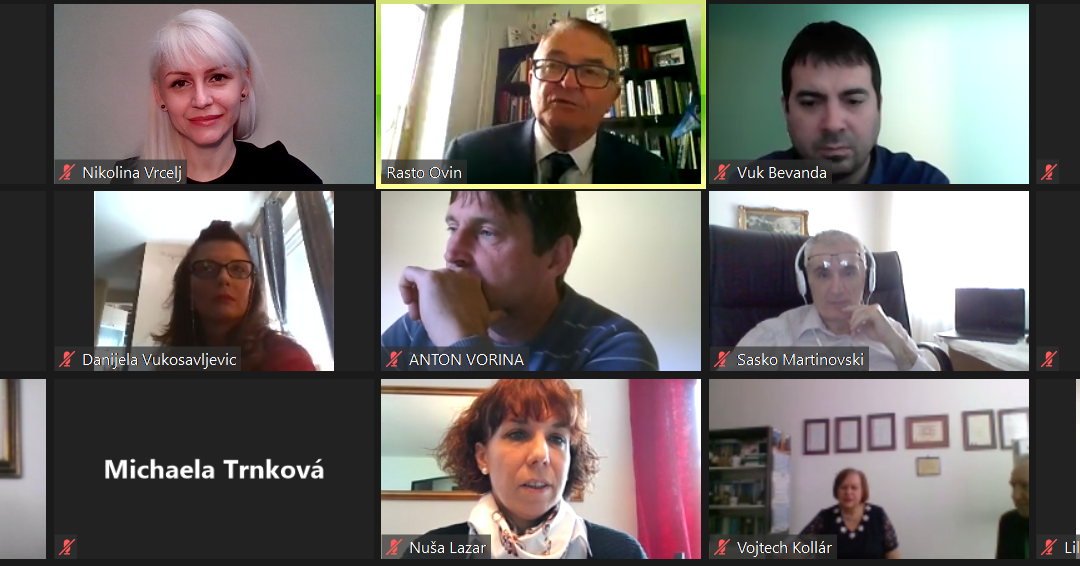Occupational Profiles Required for the Future – Need or Fiction?
Tatjana Janovac – Faculty of Applied Management, Economics and Finance, Belgrade, University Business Academy in Novi Sad, Belgrade, Serbia
Saša Virijević Jovanović – Faculty of Applied Management, Economics and Finance, Belgrade, University Business Academy in Novi Sad, Belgrade, Serbia
Keywords:
Labour market;
Changes;
Occupational profiles;
Covid-19
Abstract: Problems caused by Covid–19 led to the slowdowns of economic growth in many countries, which affected the labour market as well. The global recession, structural changes in economies and rapid development of robotics have also resulted in disappearance of many jobs. Hence, there is an actual need for new labour-market orientation, as well as occupational profiles that will respond to the challenges of modern business flows. Besides the changes provoked by the pandemic crisis on the world labour market, this paper also analyses the main indicators of the labour market in the Republic of Serbia. The paper also explores the need in defining new occupational profiles based on trends such as automation, robotics and sustainability.


7th International Scientific ERAZ Conference – ERAZ 2021 – Conference Proceedings: KNOWLEDGE BASED SUSTAINABLE DEVELOPMENT, Online/virtual, May 27, 2021
ERAZ Conference Proceedings published by: Association of Economists and Managers of the Balkans – Belgrade, Serbia
ERAZ conference partners: Faculty of Economics and Business, Mediterranean University, Montenegro; University of National and World Economy – Sofia, Bulgaria; Faculty of Commercial and Business Studies – Celje, Slovenia; AMBIS University, Prague – Czech Republic; Faculty of Applied Management, Economics and Finance – Belgrade, Serbia
ERAZ Conference 2021 Conference Proceedings: ISBN 978-86-80194-46-2, ISSN 2683-5568, DOI: https://doi.org/10.31410/ERAZ.2021
Creative Commons Non Commercial CC BY-NC: This article is distributed under the terms of the Creative Commons Attribution-Non-Commercial 4.0 License (https://creativecommons.org/licenses/by-nc/4.0/) which permits non-commercial use, reproduction and distribution of the work without further permission.
References
Balliester, T., & Elsheikhi, A. (2018). The future of work: a literature review. ILO Research Department Working Paper, 29.
Ehlers, U. D. (2020). Future Skills and the Future of Higher Education. https://wcol2019.ie, 193.
Janovac, T. (2014). Unapređenje kvaliteta visokoškolske ustanove na osnovu kriterijuma potreba korisnika. Univerzitet Privredna akademija u Novom Sadu.
Nacionalna služba za zapošljavanje (2019). Šta donose novi šifarnici zanimanja i nivoa kvalifikacija. Beograd, Published on 20th February 2019. http://www.nsz.gov.rs/live/info/vesti/_ta_donose_novi__ifarnici_zanimanja_i_nivoa_kvalifikacija.cid53866.
Neobilten (2018). Odluka o Jedinstvenom kodeksu šifara za unošenje i šifriranje podataka u evidencijama u oblasti rada „Službeni glasnik RS”, broj 56/18. od 18.7.2018.god. https://www. neobilten.com/objavljen-sluzbeni-glasnik-rs-broj-56-od-18-7-2018-godine/
Republički zavod za statistiku (2021). Bilten: Anketa o radnoj znazi 2020, Beograd
Schulte, P. A. (2020). A global perspective on addressing occupational safety and health hazards in the future of work. La Medicina del Lavoro, 111(3), 163. doi: 10.23749/mdl.v111i3.9735
Vlada Republike Srbije (2021). Strategija zapošljvanja Republike Srbije za period 2021-2026. god, Službeni glasnik RS, br.18/21 i 36/21.
U.S. Bureau of labour statistics (2020). Employment Projections: 2019-2029 Summary, Tuesday, September 1, 2020, https://www.bls.gov/news.release/ecopro.nr0.htm.
Wagner, C. G. (2011). 70 Jobs for 2030. The Futurist, 31.
World economic forum (2020). Future of Jobs Survey 2020, Geneva, Switzerland. Published on 20th October 2020, https://www.weforum.org/reports/the-future-of-jobs-report-2020

